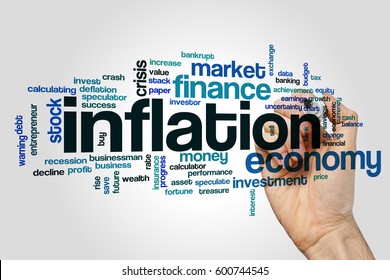Business
Kenya’s Doomed Election Driven Inflation in 2022

Kenya has always had the highest record of inflation rates in election years and it is currently staring at a highly contested general election regime change. Costs of living will most likely skyrocket even as the government tries to downplay high projections by independent bodies hence households are advised to brace themselves.
The high circulation of campaign money which is outpacing goods and services is the main factor that economic experts are attributing to cause the inflation. Abraham Muriu, the Country Manager at International Budget Partnership shares his thoughts on the same and says that 2022 will be just like the previous election years.
Muriu said, “Huge money supply that is not matched with a growth in goods and services is the major cause of the high cost of living.” Dan Mwenda, an economic expert shares the same views as Muriu since the high saturation of local currency making rounds in these campaigns may contribute to the worsening of the stability of the local currency against international currencies which will push up import costs.
Mwenda said that “The shilling is already struggling against a strengthening US dollar. Politicians have started flooding the market with more local currencies. This will push up import costs which are then passed to end consumers.”
Alykhan Satchu, who shares the same sentiments said, “We always tend to see outsize election-related spending which is the main trigger. You will recall the “Jirongo”in1992.” Kenya has always recorded the highest inflation rates during its general elections with the highest being during the 1992 election when it was 27.3 percent.
Cost of living reached an all-time high with 54.98 percent a year later after claims of printing Sh500 notes in order to dilute the economy and families could barely stay afloat. After MPs shot down to put a pin on the amount, election campaigns this year are looking to hit an all-time high.
The 2012 general elections caused Kenya’s inflation to hit past CBK’s benchmark of 7.5 percent during the general election and was at 9.38 percent. In 2017, a repeat of the same happened and it hit 9.38 percent.
The Central Bank of Kenya said that inflation is expected to remain within a range which in turn mummed demand pressures and the impact of government measures to reduce electricity tariffs and to stabilize the fuel prices.
Projection of inflation by the government is much lower as compared to international independent firms and the private sector. On a host of uncertainties both internationally and locally, the private sector expects inflation to go up to 6.5 percent.
The expected poor rainfall pattern, currency volatility, rising global oil prices, and the upcoming general elections, according to chief executives and banks and non-bank institutions will be a hindrance to a softer cost of living this year.







